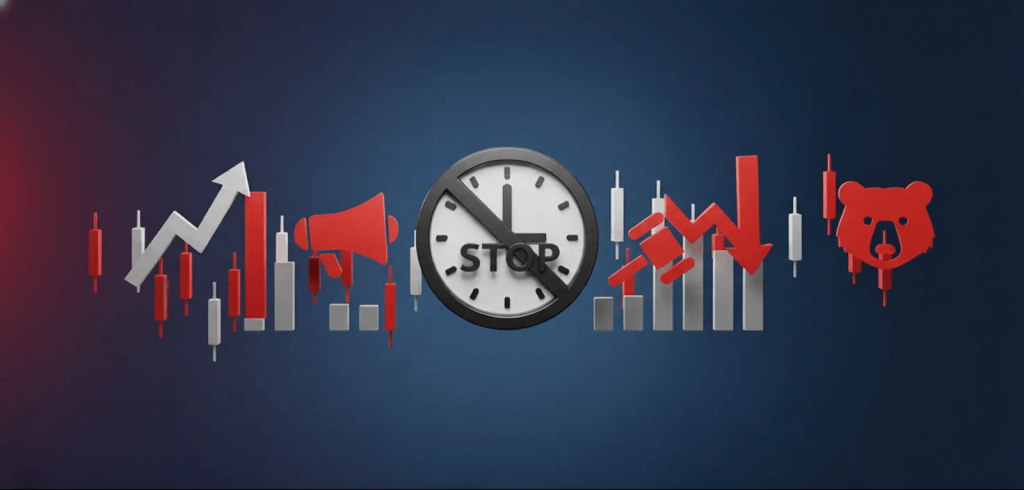
Who is the Market Maker, and How Does It Work?
Contents
The term “market maker” is often thrown around without a full understanding of what it means. Yet this concept is crucial to the dynamic and often ambiguous world of financial markets. Market makers are responsible for buying and selling securities on a continuous basis to maintain trading liquidity. They may be individuals or organizations like banks. They play a crucial role in providing market liquidity, which facilitates simpler and more efficient trading for all parties.
How Market Makers Work
Market makers mostly focus on making liquidity accessible to traders. In the context of finance, liquidity is the capacity to purchase or sell an asset with little to no impact on its price. The ability of a robust market with high liquidity to swiftly and successfully complete transactions defines it.
Market makers’ capacity to provide quick trade executions originates from their well-managed and diverse portfolio of assets, which includes stocks, bonds, and other financial instruments. Their inventory approach includes a thorough examination of market patterns, historical data, and current economic indicators in order to forecast future market moves. To reduce risk, they deliberately diversify their assets across industries and asset classes. This diversity guarantees that their exposure to market volatility is balanced and that they can handle a variety of market conditions.
They prioritize effective risk management in their operations. Market makers use risk assessment with hedging techniques to help offset the risks of owning various assets. They use derivatives and other financial instruments under hedging strategies to guard their main assets from possible losses. These strategies are always changing to fit the situation of the market.
The Bid-Ask Spread
Apart from providing income for market makers, the bid-ask spread is a crucial part of their trading mechanism. Market makers decide this spread based on their own risk exposure, the liquidity of the asset, and present market volatility. This gap varies in reaction to market circumstances, expanding during periods of uncertainty and shrinking when markets stabilize. This adjustment strikes a balance between profit creation and the need to maintain competitive and attractive business conditions.
For traders, the bid-ask spread is an important factor since it directly determines the cost of trading. Understanding this spread gives insights into market liquidity and circumstances, which influence trading tactics and choices.
Market makers play an important role in keeping market prices stable, particularly during tumultuous times. They absorb excess supply or demand, minimizing excessive price fluctuations and preserving market trust. Their ongoing trading operations guarantee that panic selling or buying does not result in severe price volatility, especially amid quick market shifts.
Furthermore, market makers encourage the trade of lesser-known or newer assets. Their dedication to provide liquidity for these assets contributes to their market establishment, supporting development and variety in the financial ecosystem.
Market makers are critical to maintaining the proper running of financial markets. Their competence in inventory management, bid-ask spread setting, and market stabilization via strategic trading positions them at the center of the market’s ecosystem.
To see how a market maker works in the real world, imagine a currency exchange booth at the airport. You’re flying from Paris to New York and want to convert €100 to USD at the Charles de Gaulle Airport. The airport currency exchange offers to take your €100 and give you $110. That’s the ask price – what they are selling USD for. After your trip, you still have the $110 and want to convert your USD back to euros. The currency exchange will quote you €97 for your USD. That’s the bid price – what they will buy USD for.
The exchange booth just collected €3. They are acting as a market maker, which means they were always prepared to purchase and sell currency whenever you wanted to. You do not even need to find someone that wanted your exact amount of dollars at that moment. The booth took the risk of holding the currency that could lose value if the exchange rate changes, and they made a little profit from the bid-ask spread.
This example demonstrates the instant liquidity that market makers provide so that you are able to bring the dollars in today, even if it is not the best rate. In financial markets, market makers perform the same role, ensuring that there is always a buyer and seller.
You may also like

Types of Market Makers
Not all market makers work the same way – each market requires a different approach. Below is a breakdown of the main types:
Retail FX/CFD Market Makers
Usually brokers that provide certain foreign exchange and contracts for difference (CFD) trading on behalf of retail or individual investors, often using a market maker dealing desk model. In this case, the market maker usually takes the opposite side of the client’s trade to make a profit from the spread or from client losses. This makes sure there is enough liquidity for small retail traders but certainly raises questions concerning the conflict of interest.
Institutional Market Makers
Citadel Securities and Virtu Financial are the two largest players in institutional market making spanning across global equities, options and fixed income markets to name a few. Institutional market makers use high-frequency trading (HFT) and large inventories, and they can aggregate complex liquidity from different transactional markets, quoting prices in multiple markets at the same time managing large trades all at once. Institutional market makers are often responsible for a substantial share of total volume traded.
Crypto Market Makers
At the digital asset level, the roles of market makers or liquidity providers are filled by firms like Wintermute, GSR, and Jump Crypto, reducing the extreme volatility of crypto markets and ensuring firm trading for thousands of token pairs in a consistent way; all whilst often using algorithmic strategies specific to both decentralized finance (DeFi) and centralized exchanges.
Real-World Examples of Market Makers
To better understand how a market maker operates in the “real world,” let’s consider a few major firms in different financial markets:
Citadel Securities – Equities & Options
Citadel Securities is arguably one of the largest and most influential market makers in the world. Citadel provides liquidity on U.S. equities, options, and other asset classes. They have a significant focus on high-frequency trading and have large capital commitments to retail order flow executions. Citadel often executes a sizable percentage of all U.S. equity trades, which provides seamless execution services for institutional and retail investors alike.
Flow Traders – Exchange-Traded Funds (ETFs)
Flow Traders, based in Amsterdam, focuses on market making in the ETF space. They have a major role in helping to create a tight spread, as well as consistent liquidity in the European and U.S. ETF markets. Flow Traders provides liquidity and access to the ETF space for investors around the world through continuous quoting long after markets have closed for the most part—including during increased periods of volatility.
Wintermute – Cryptocurrencies
Wintermute is a top performing algorithmic market maker in the crypto space. As a primary participant in both centralized and decentralized exchanges, Wintermute supplies liquidity across thousands of crypto pairs. Their role is even more valuable in a decentralized and fragmented market (which is also volatile) where they help reduce slippage and provide certainty in pricing for emerging tokens as well as major cryptos like Bitcoin and Ethereum.
The Role of Market Makers in Different Markets
Market makers play an important role in a variety of financial markets, each with its own unique features and expectations. Their agility and strategic operations are critical for ensuring stability and liquidity across these many trading platforms.
In the Stock Market
Market makers are crucial in keeping stocks continually accessible for trading in stock markets. They manage different stock levels to guarantee sellers have a market easily accessible and purchasers always have a ready supply. This position is especially important for companies that are not actively traded, since the market maker comes in to provide the required liquidity. By offering to purchase or sell these equities, market makers help to lessen price volatility and keep the market stable. They successfully bridge the supply-demand imbalance, allowing investors to trade in a fair and efficient environment.
In the Forex Market
The Forex market, recognized for its high liquidity and ongoing trade cycle, heavily relies on market makers for foreign currency liquidity. They are in charge of setting exchange rates, which are impacted by a complex interaction of global supply and demand, economic indicators, and geopolitical events. Fx market makers deal with a wide variety of currencies and manage the risks involved with currency value swings. Their activities keep currencies liquid, making smooth and fast currency swaps essential to global commerce and finance.
In the Commodities Market
Trade of tangible goods such oil, gold, and agricultural products is made possible in great part by market makers in commodity markets. Their participation is very essential for creating and maintaining a market for these products. Many factors, including the shifting seasons, world economic trends, and geopolitical events—all of which may significantly affect commodity prices—have to be taken under account. By offering liquidity, market makers help producers and consumers to shield themselves from price swings, hence preserving consistent commodity values.
Market makers show amazing versatility in their approaches across these diverse marketplaces. For example, in the stock market, they may manage a wide portfolio of equities, but in the forex market, they may analyze and react to international economic news and trends. This ability to adapt tactics to market-specific needs demonstrates their critical role in ensuring a stable and efficient global financial ecosystem.
Market makers’ involvement in stock, forex, and commodities markets highlight their critical importance to the global financial system. They serve to calm markets during times of uncertainty by guaranteeing liquidity and market efficiency in various trading settings. Their knowledge and strategic approach in each market demonstrate their importance in maintaining a strong and dynamic financial environment.
Benefits of Market Makers
Market makers provide major advantages that improve market efficiency and foster a healthy trading environment. Their significance goes beyond just facilitating transactions; they are critical to the seamless operation and stability of markets.
Market makers are the unsung heroes who ensure the continuous availability of securities for trade. This continual presence enables trades to be executed quickly, which is crucial in sustaining the smooth flow of transactions that distinguishes an efficient market. Their capacity to purchase or sell assets on demand means that traders and investors may carry out their plans without excessive delays, improving the market’s general fluidity and responsiveness.
Market makers play an important role in reducing market volatility during times of instability or uncertainty. They operate as stabilizers, absorbing excess supply and matching demand to avoid significant price fluctuations. This role is especially useful during times of economic crisis or important news events, when their activities may assist attenuate severe market responses, shielding the market from chaotic price swings and preserving predictability.
Market makers have a considerable impact on the bid-ask spread. Tighter spreads guarantee more equitable pricing for securities, benefiting all market players. Tighter spreads reduce the cost of trading, enabling traders to perform deals closer to the market’s true value. This is particularly beneficial for individual investors, since reducing transaction costs may make trading more accessible and affordable.
Predictable trading conditions are an additional benefit provided by market makers. Their presence and regular engagement in the market give stability in price structures, which is critical for traders and investors when developing and implementing market strategies. This predictability also helps to reduce trading risks since players have a better grasp of probable entry and departure locations in the market.
Market makers play a significant role in generating trust among investors and traders. Knowing that a solid foundation of liquidity and sustainability underpins the market promotes further involvement. This is especially crucial for recruiting individual investors who may be put off by concerns about illiquidity or unbalanced pricing. A confident and diversified participant base results in a strong and dynamic market brimming with investment prospects.
In addition, market makers play an important role in promoting development and innovation in the financial markets. They promote the development of new financial services and goods by providing liquidity for emerging or less known securities. This support is critical for the market’s expansion, enabling the discovery and construction of new investment frontiers, so enhancing the financial environment.
Market makers play an essential role in the operation of financial markets. They enable efficient and reliable market operations while also creating an atmosphere favorable to fair trade and wide participation. Their significance extends beyond liquidity supply, establishing them as vital players in promoting a dynamic, accessible, and ever-changing financial industry.
KEY TAKEAWAYS
- Stabilizing Influence: Market makers are crucial in stabilizing financial markets, especially during volatile periods, ensuring a predictable trading environment.
- Strategic Flexibility: They adeptly adapt strategies across various markets like stocks, Forex, and commodities, highlighting their strategic role in global finance.
- Ethical and Regulatory Balance: Navigating ethical trading practices and profitability, market makers operate within a complex regulatory framework, emphasizing the need for ethical integrity.
- Enhancing Market Accessibility: By ensuring liquidity and offering tighter spreads, market makers lower barriers to entry, fostering market growth and innovation.
Challenges and Criticisms of Market Makers
Although market makers play an important role in financial markets, their activities are not without difficulties and criticism. These difficulties derive largely from their distinct market position, which, while critical for liquidity, also creates prospective conflicts of interest and moral dilemmas.
Market makers often find themselves in circumstances where their interests may collide with those of the market players they serve. For example, they may have access to considerable order flow data that they might exploit to their advantage. This insider view, if abused, may lead to unethical trading behavior in which the market maker prioritizes profits above market integrity. Ethical issues are crucial in this environment, since market makers’ activities may have a major impact on market pricing and other participants’ trading experiences.
Additionally, there are fears that market makers might produce fabricated market conditions via their trading operations. For example, they may arrange larger bid-ask spreads than required, increasing trading costs for investors. While advantageous to market makers’ profits, these activities may raise concerns about equitable markets and openness.
Complicated and diverse, the regulatory structure controlling market makers is to ensure that they behave ethically and honestly. Tight limits and monitoring systems are enforced by regulators such the Securities and Exchange Commission (SEC) in the United States and other financial organizations all around. These limitations are meant to stop unethical trading practices and prevent market manipulation, therefore protecting investors.
However, the complexities of these regulations create their own set of issues. Market makers must traverse a maze of laws and compliance requirements, which may be both resource-intensive and constraining. Maintaining compliance requires ongoing monitoring and adaptability to new regulatory requirements, which may be especially difficult in quickly changing market settings.
A market maker’s responsibility is striking a balance between making profits and ensuring a fair and orderly marketplace. While their main goal is to supply liquidity and promote efficient market functioning, they must do it in accordance with ethical principles and regulatory requirements. This balance is not always simple to strike, resulting in scrutiny and criticism from diverse market parties.
As we’ve seen, despite their many advantages, market makers do not come with drawbacks. We’ve created a quick table summarizing the key pros and cons associated with their role across different markets:
| Pros | Cons |
| Supply liquidity | Risk for conflict of risk |
| Lower spreads | Potential price manipulation |
| Stabilize markets during volatility | Regulatory oversight can be somewhat burdensome and inconsistently applied |
| 24/7 trading, especially in crypto markets | Not always transparent |
| Support access to illiquid or niche assets | Potentially prioritizes profit over fairness |
| Tighten bid-ask spreads, lowering transaction costs, profiting traders | Can artificially widen spreads, disadvantaging investors |
| Encourage market innovation by supporting new asset classes | Faces criticism from regulators and market participants |
| Increases trust and investor confidence by maintaining orderly market functioning | Should navigate expensive and complicated regulatory requirements |
Broker vs. Liquidity Provider: What’s the Difference?
Despite brokers and liquidity providers being important participants in the trading ecosystem, there are important distinctions.
- Brokers provide linkages between the trader and the market, specifically executing trades on behalf of clients, whether retail or institutional. Depending on the model, they either forward your order to the market (STP/ECN) or take the opposite side of your trade (Market Makers / Dealing Desk model). Brokers tend to earn through spreads, commissions, or a combination of the two.
- Liquidity providers (LPs) are the actual sources providing prices and market depth. When a liquidity provider quotes you a buy/sell price in some instrument, they are prepared to provide that trade at that price. Liquidity providers are providing liquidity to brokers (and exchanges which are also brokers) to execute trades as needed. Some brokers partner with one or more liquidity providers to gain access to deeper, and more competitive pricing.
Said it in simpler terms:
- A Liquidity Provider creates the market.
- A Broker connects the trader to that market.
That distinction becomes especially relevant in Forex and crypto because some brokers are also market makers, lending to obscuring the line between the two.
Conclusion
Providing liquidity and security throughout a range of markets including stocks, currencies, and commodities, market makers are vital players in the financial markets. Their value in preserving fair and efficient trade cannot be emphasized enough as they encourage more proficient transactions and therefore help to lower market volatility. Market makers are crucial in maintaining the integrity of financial markets even with issues such probable conflicts of interest and the difficulty of regulatory compliance. Important in the global financial system as their ability to reconcile profits with ethical trading practices determines the condition of the market.
FAQ
Their primary role is to provide markets with liquidity. They earn profits mainly from the bid-ask spread ie the difference between the buy and sale prices of one asset ie if a market maker buys at 13.00 and sells at 13.10, the profits can be 0.10 per share. High frequency models will make small profits and rely on many incremental small profits rather than big single trades.
No, they are not. Market makers offer liquidity by posting both buy and sell prices and are willing to take the opposite side of the trade. Brokers act as intermediaries in the process of executing trades for their clients and, generally, brokers do not take risk themselves in executing trades, although some brokers do act as market makers under some models (such as dealing desks), which can cause some confusion.
Definitely. Market making involves inventory risk, which means the asset in your account can quickly change in value in volatile markets. Through techniques like hedging, market makers take steps to decrease exposure, but the risk is always there - especially in volatile and illiquid markets.
Market makers may have the ability to influence short-term price action based on the size of their trading activity, and while they are limited in their ability to manipulate due to regulations, this does not mean that it cannot happen. In more lightly regulated (or unregulated) markets (like many crypto exchanges), there is a potential for manipulation risks, especially since there is limited meaningful oversight.
Tighter spreads cause a decrease in the cost of trading for market participants. For traders, this means the traders can enter and exit positions that are closer to the real market price, and the efficiency is better in markets where spreads are tighter, which increases efficiency and access for retail investors.
Updated:
April 22, 2025
9 February, 2026
What Is a Trading Halt? Why Stocks Stop Trading and What It Means for You
A trading halt is when an exchange temporarily stops trading in a stock or, in rare cases, the entire market. It’s not a glitch and it’s not random. It’s a deliberate pause triggered when prices move too fast, critical information is about to be released, or regulators need time to step in. From the outside, […]



